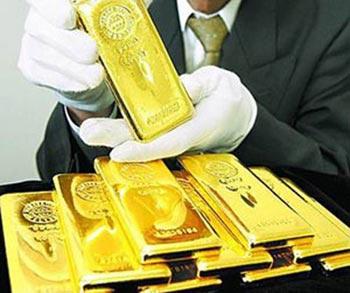Source: CCTV.com
11-04-2008 11:23
Gold has always had its place in many investor portfolios seen as a sef bet carrying intrinsic value. But the precious metal frequently returns to the spotlight in times of financial turmoil. In our latest BizChina 360 series, we look at gold China, its fledgling market, its production, and investment.
Our first installment, we look at dramatic developments over the last 8 years.
 |
| In 2007 China became the largest gold production country in the world-toppling South Africa from a position it had held for over a hundred years. |
It's an exciting new century for China's gold market. That's because in 2007, China became the largest gold production country in the world-toppling South Africa from a position it had held for over a hundred years. China’s gold consumption also grew multifold, and now ranks 2nd globally. And experts such as precious metals consultancy GFMS limited are confident, that the positive trend will only continue.
Philip Klapwijk, Executive Chairman of GFMS Ltd. said "The China market in 2008 will probably be the world's largest physical gold market, supply, demand, consumption. China will be the world's largest gold market in 2008; that tells you the significance of the China market."
What may be even more startling is the fact that it has taken less than a decade for the country to get here. Previously, gold was managed under the old system of "unified purchase and allocation", and was strictly controlled by the central government. The development of the gold market was stagnant, at best.
But 2000 proved to be a pivotal year. Everyone in the gold industry hailed the Chinese government’s move to include opening up the country’s gold market in its 10th five year plan. The basic goal was to gradually loosen control of the market by establishing a new system for gold production, circulation and healthy consumption through market dynamics.
Gu Wenshuo, General Manager of General Office of Shanghai Gold Exchange said "The reform of the gold market was very critical. That's because gold represented not only a commodity, but also a financial function. It was also related to the country’s gold reserve, and many other issues. As a result, China focused on reforming its gold management system. Under those circumstances, we did thorough investigation of the market conditions, and learned from the experience of other countries. On such basis, the State Council ratified the People’s Bank of China to establish a gold market to adjust gold resources."
So at the turn of the millennium over 20 years after China began to shift towards a market economy, the country finally launched its market reform for the gold industry.
